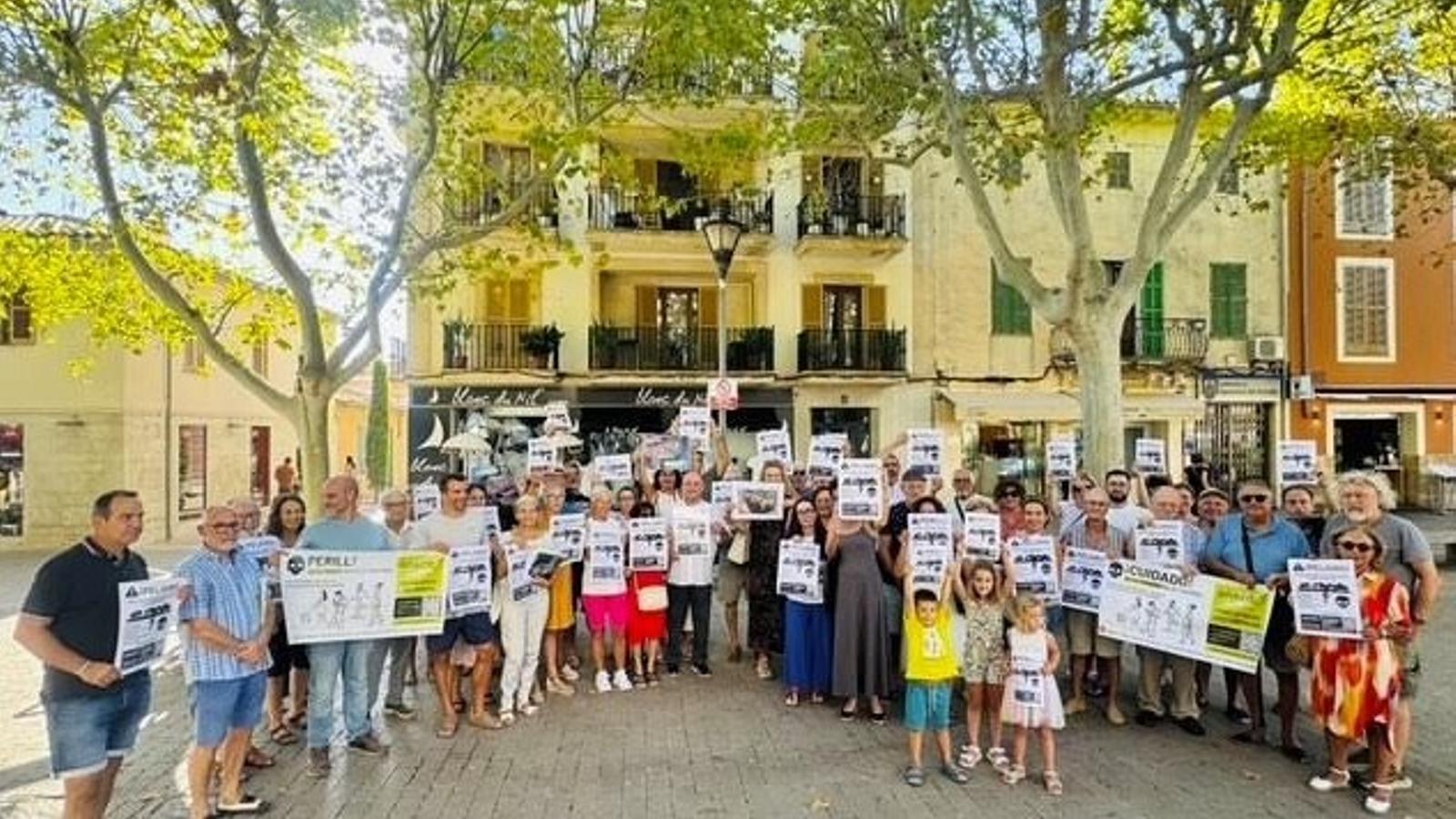Alcudia residents call for a redesign of the new high-voltage power line: "There are proposals with zero commitment."
ANACA considers the approach of providing explanations insufficient and demands that "we must sit down and work."

PalmThe Association for a New Agreement for the Alcudia Cable Car (ANACA), created in August to reject the latest proposed route, has asked institutions to reopen a participatory process and reconsider the cable car's entry through Alcudia Bay. The organization reiterated its rejection of the approved route after meeting on Wednesday with those responsible for the operation, including Diego Viu, Director General of Circular Economy, Energy Transition, and Climate Change; Fina Linares, Mayor; and Maria Paz Andrade, Director General of Urban Harmonization and Environmental Assessment.
During the meeting, the authorities insisted on providing explanations but "showed no willingness" to resume joint work with the public, ANACA reproached in a statement released this Thursday. According to the association's members, they are simply inviting the entity to present objections when the project is published in the Official State Gazette (BOE) and the Official Gazette of the Autonomous Community of Madrid (BOIB), excusing themselves by saying that "the file is already in Madrid and nothing can be done now."
The association considers the approach of providing explanations insufficient and demands that "we must sit down and work." The willingness to reopen the working table with the public, expressed by Mayor Linares, "must be translated into a real political commitment: reactivate a space for technical and participatory dialogue."
Of the 13 options originally evaluated, ANACA supports the marine entrance through the Bay of Alcudia to the Murterar power plant, alternative 10-Bis, as outlined in the environmental impact study, considering it "the most rational, sustainable, and fair."
"Zero impact" alternative
They argue that it leverages existing infrastructure, has "zero impact" on homes and small businesses, and minimal impact on posidonia, taking advantage of sandbanks and paleochannels. It provides internationally proven technical solutions, creates a favorable scenario for environmental compensation, and is an alternative recognized in the environmental study itself.
ANACA calls for a reconsideration of the decision taken and a transparent and rigorous evaluation of alternative 10-Bis, which allows progress toward a "fair energy transition that is respectful of the environment and the people who live in the municipality of Alcúdia."
